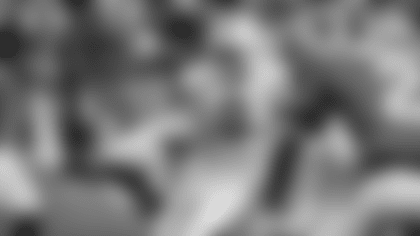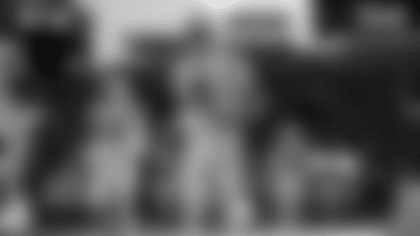The Green Bay Packers once again were profitable over the past fiscal year, but their operating profit dropped more than 50 percent from the previous year as the rising cost of player salaries continued to outpace revenue growth.
In the team's latest financial report, a preview of which was released to the media this week, the Packers' operating profit for the 2010 fiscal year (ending March 31, 2010), was $9.8 million, down from $20.1 million the year prior. The primary reason for the decline, despite a $10.1 million increase in overall revenue, was a $22.1 million jump in player costs, which increased 15.9 percent from $138.7 million to $160.8 million. It marked the third consecutive year that operating profits declined, from $34.2 million (2007) to $21.4 million (2008) to $20.1 million (2009) to $9.8 million (2010).
That's the trend the Packers have pointed to as unsustainable – declining operating profits, which reduce club incentives to make investments necessary to grow the game – and is the key issue in the league's ongoing negotiations for a new collective bargaining agreement with the players' union.
"The organization is in good shape financially, and we remain fully able to support our football operations and provide all the resources needed to field a championship-caliber team," Packers President/CEO Mark Murphy said. "But over the last few years we've been concerned with the escalation of player costs relative to overall revenue and reduced incentives to ownership to grow the game. That's what we're looking to address in the CBA negotiations, because if the current trend continues, it's not good for the Packers or for the NFL."
Murphy explained the trend by comparing the team's finances from the 2006 fiscal year, the final year under the previous CBA before the current, expiring deal took effect in 2007. In short, as the team has seen revenue increases both nationally (television contracts, league revenues, etc.) and locally (Lambeau Field Atrium businesses, Pro Shop, etc.), more and more of that money has been needed to pay the players.
Over the four-year period since 2006, the Packers have generated $132 million in incremental revenue, and $123 million of that, or 94 percent, has gone to player salaries. Comparing the most recent fiscal year to 2006, the Packers' revenues are up $50 million, from $208 million to $258 million, while player costs have gone up $58 million, from $103 million to $161 million.
Seen another way, the Packers' revenues have grown 5.5 percent annually over the past four years while player costs have increased 11.8 percent annually, or more than double the rate.
"We're working hard to contain the expenses that are in our control," said treasurer Larry Weyers, who noted the rest of the franchise's operating expenses, outside of player salaries, actually decreased this past year, from $89.1 million to $87.3 million. "Those have remained flat or gone down in recent years."
In the end, the team's net profit – which is lower than the operating profit after tax provisions and investment performance are taken into account – actually went up to $5.2 million for 2010. That's 29 percent higher than the previous year's $4 million, in part because the stock market stabilized and the team's investments didn't lose nearly as much value.
But it's the 51 percent decrease in operating profit, from $20.1 million to $9.8 million, that's most notable, particularly when the team on the field went from 6-10 in 2008 to 11-5 and in the playoffs in 2010.
This past year's $22.1 million increase in player costs was substantial, in part due to significant long-term contracts given to veteran players Ryan Pickett, Nick Collins and Chad Clifton. But the Packers' negotiating position with regard to those contracts was aided somewhat by the new free-agency rules in the final year of the current CBA, which kept players with four and five years of experience as restricted rather than unrestricted free agents.
The Packers have had the youngest team in the league four years running, and as a consequence more players are approaching their free-agency years now and in the near future. The expiring CBA temporarily helped the Packers with such players in the short term, but how that picture looks moving forward will depend on the new deal with the players' union.
"We took advantage of all the protections available under the new rules and our costs still went up dramatically," Murphy said. "There wasn't a change in the way we do business. We're still focused on drafting , developing and retaining our own players, and paying as we go."
The CBA establishes the salary cap for each team based on a percentage of the league's gross revenues, so if player salaries are going up, that means revenues are up league-wide. Much of that additional revenue is being generated by all the new stadiums built over the past decade or so, including the renovated Lambeau Field. But the CBA formula for the salary cap is essentially based on gross revenues and doesn't take into consideration the vast majority of the debt and expenses teams incur to generate that revenue.
The Packers, who redeveloped Lambeau Field in 2003, have minimal debt service but are now challenged with finding additional sources of revenue with a "new" stadium that is seven years old. The team's $10.1 million increase in revenue this past fiscal year was due entirely to national revenues, which jumped $10.5 million (from $147.1 million to $157.6 million), while local (i.e., stadium) revenues remained static, dropping roughly $400,000 (from $100.8 million to $100.4 million).
In the coming year, the Packers will see a boost in local revenues from an increase in ticket prices. The team raised ticket prices for the first time in three years, with an average $9 increase for all stadium bowl seats in 2010. Subtracting the visiting team's portion of the gate, that will result in a roughly $4 million increase in revenue.
The team also has seen a benefit from the new Pro Shop warehouse on nearby Ashland Avenue. That facility, along with new customer data warehouse software being utilized, is providing for more efficient retail operations, particularly for online sales.
Meanwhile, challenges continue with the current state of the economy. For example, in the areas of stadium suites and club seats, the team must continue to build potential client lists at a time when many local businesses are cutting back on such expenses.
There are also long-term development plans in the works for various properties the team owns adjacent to Lambeau Field. But like with the Atrium businesses, it's going to require an investment to generate revenue with those types of ventures and like other teams in the league, the Packers would like to see a new CBA that recognizes those costs in some respect.
"It's our challenge to find other sources of revenue and diversify our business so that revenue growth is not exclusively on the backs of the ticket-holders," said Jason Wied, vice president of administration/general counsel. "We're working toward a system that will encourage investment.
"We've discussed with local leaders options for broad and sustainable economic development in the area, which is the right thing for our organization and the community. We're going to continue to do business and do what's good for our local economy. But we'd like the system to change."















